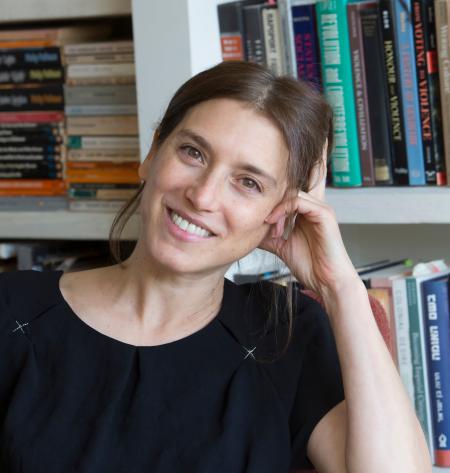How India Became Democratic
3600 Market Street, Suite 560 (5th floor)
University of Pennsylvania
Philadelphia, PA 19104
Listen to podcast (in conversation with Bilal Baloch, CASI Postdoctoral Research Fellow)
About the Speaker:
Ornit Shani is a scholar of the politics and modern history of India. She received her Ph.D. from the University of Cambridge. She was a Research Fellow at St. John’s College, Cambridge University. Her current research focuses on the modern history of democracy and citizenship in India. Her new book is How India Became Democratic: Citizenship and the Making of the Universal Franchise, Cambridge University Press, 2018 (South Asia edition with Penguin Random House). This book uncovers the greatest experiment in democratic history: the creation of the electoral roll and universal adult franchise in India. Ornit holds an Israeli Science Foundation (ISF) grant for her sequel project: ‘Embedding Democracy: the Social History of India’s First Elections’. Her other areas of research are the rise of Hindu Nationalism, identity and caste politics, communal and caste violence. She is the author of Communalism, Caste, and Hindu Nationalism: The Violence in Gujarat, Cambridge: Cambridge University Press, 2007.
About the Lecture:
This seminar will explore how the principle and institution of universal franchise attained meaning and entered the political imagination of Indians. Prof. Shani argues that it was the way in which the preparation of the first electoral roll on the basis of adult franchise became part of popular narratives that played an essential role in connecting people to a popular democratic political imagination. The bureaucrats who managed the operation communicated their directives for the preparation of electoral rolls as a story through press notes, which were widely discussed in the press. People could insert themselves into this narrative as its protagonists. This process, in turn, gave rise to a collective passion for democracy, contributing to the democratization of feelings and imagination. This seminar focuses on themes from Prof. Shani's book How India Became Democratic, which tells the untold story of the preparation of the electoral roll on the basis of universal adult franchise in the world's largest democracy.

